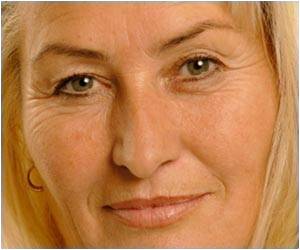The HVTN 702 vaccine regimen has been adapted to the HIV subtype that predominates in southern Africa, where the pandemic is most pervasive.

- The HVTN 702 is the largest and most advanced HIV vaccine clinical trial to be undertaken in South Africa.
- It is based on RV144, a vaccine tested in Thailand but was effective for a fair 31%.
- The trial aims to understand the immune responses associated with preventing HIV infection.
The director of the National Institute of Allergy and Infectious Diseases (NIAID), which is part of the NIH, Anthony S. Fauci said the new study is based on the one conducted in Thailand led by the U.S. Military HIV Research Program and the Thai Ministry of Health.
“The HVTN 702 vaccine regimen has been adapted to the HIV sub type that predominates in southern Africa, where the pandemic is most pervasive,” Fauci said in a statement. The study is expected to enroll 5,400 sexually active men and women between 18 and 35 at 15 sites across South Africa where more than 1,000 people a day are infected with HIV.
“Even a moderately effective vaccine would significantly decrease the burden of HIV disease over time in countries and populations with high rates of HIV infection, such as South Africa,” Fauci said.
The 2009 Thailand study proved for the first time that an AIDS vaccine was possible. It looked at a vaccine candidate called RV144. Since the results were announced, researchers have been combing through the data. The vaccine, however, only offered a protection rate of 31 percent—not high enough to go to market, but high enough to cause a lot of excitement for vaccine researchers.
The P5 aims to produce an HIV vaccine that could have a significant public health benefit in southern Africa and to advance scientists' understanding of the immune responses associated with preventing HIV infection. P5 members include NIAID, the Bill & Melinda Gates Foundation, the South African Medical Research Council, HVTN, Sanofi Pasteur, GSK and the U.S. Military HIV Research Program.
The vaccines do not contain HIV and therefore do not pose any danger of HIV infection to study participants. Both ALVAC-HIV (supplied by Sanofi Pasteur) and the protein vaccine (supplied by GSK) have been modified from the versions used in RV144 to be specific to HIV sub type C, the predominant HIV sub type in southern Africa.
Additionally, the protein sub unit vaccine in HVTN 702 is combined with MF59 (also supplied by GSK), a different adjuvant than the one used in RV144, in the hope of generating a more robust immune response. Finally, the HVTN 702 vaccine regimen includes booster shots at the one-year mark in an effort to prolong the early protective effect observed in RV144.
The study volunteers are being randomly assigned to receive either the investigational vaccine regimen or a placebo. All study participants will receive a total of five injections over one year.
The safety of HVTN 702 study participants will be closely monitored throughout the trial, and participants will be offered the standard of care for preventing HIV infection.
Study participants who become infected with HIV in the community will be referred to local medical providers for care and treatment and will be counseled on how to reduce their risk of transmitting the virus.
Source-Medindia















